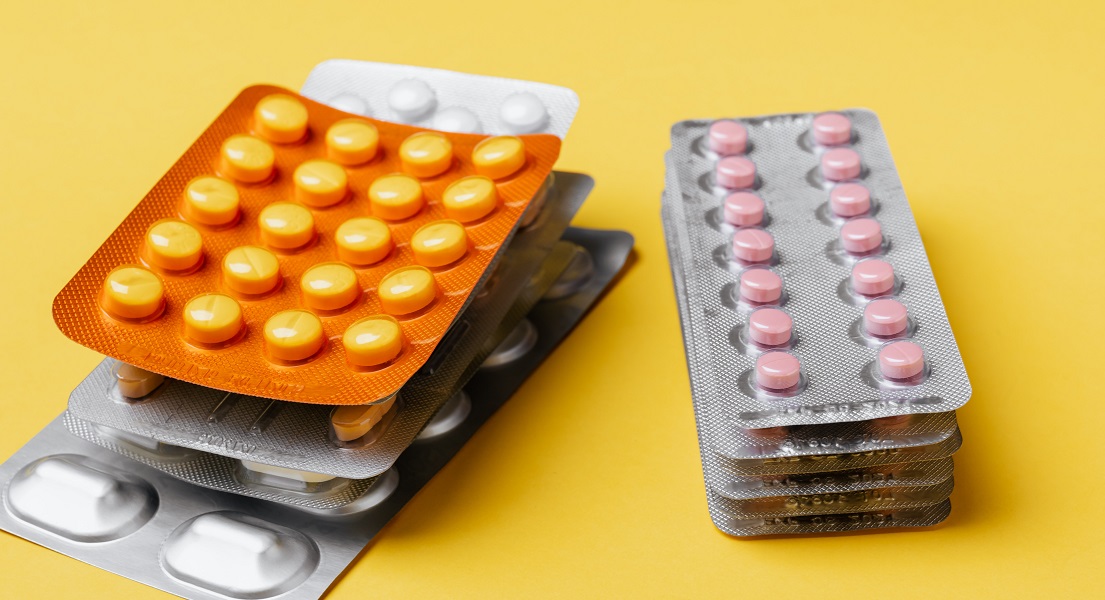Hormone Replacement Therapy (HRT) has long been used to help individuals experiencing symptoms related to menopause, gender transition, or hormonal imbalances. However, a question often arises: Can HRT cause depression? This article delves into the potential link between HRT and depression, offering real stories, scientific insights, and expert advice. By addressing common concerns and breaking down the treatment process, we aim to help you better understand this important issue.
What is HRT and Why is it Used?
Before diving into the connection between HRT and depression, it’s important to understand what Hormone Replacement Therapy is and how it works.
Hormone Replacement Therapy is a medical treatment aimed at replenishing hormones that the body no longer produces in sufficient amounts. It is commonly prescribed to individuals going through menopause, experiencing gender dysphoria, or dealing with certain health conditions like hypothyroidism.
-
For Menopause: HRT can alleviate symptoms like hot flashes, night sweats, and mood swings.
-
For Gender Transition: HRT helps individuals transitioning from male to female or female to male by altering secondary sexual characteristics.
-
For Hormonal Imbalances: It may help in restoring balance to those suffering from conditions like thyroid issues.
By introducing synthetic or bioidentical hormones, HRT can significantly improve the quality of life for many people. But can it come with side effects, particularly concerning mental health?
Can HRT Cause Depression?
The question can HRT cause depression? is one that many people who are considering or undergoing treatment wonder about. The relationship between hormones and mood is well-documented, but the answer is not entirely straightforward.
The Hormonal Impact on Mood
Hormones like estrogen, progesterone, and testosterone play vital roles in regulating mood, energy levels, and mental well-being. When these hormones fluctuate or decline—such as during menopause or due to hormonal imbalances—mood disturbances can occur. For example, many individuals undergoing menopause experience depression-like symptoms due to a drop in estrogen levels.
While HRT aims to stabilize these hormonal levels, the process can sometimes lead to emotional fluctuations. Some studies suggest that HRT may actually help alleviate symptoms of depression, particularly in individuals going through menopause. However, there are cases where some individuals may experience mood swings or depression-like symptoms after starting HRT.
Scientific Studies on HRT and Depression
Several studies have explored the connection between HRT and depression, but results have been mixed. Some individuals report improvements in their mood after starting HRT, while others experience emotional side effects. For example:
-
Positive Findings: According to a study published in The Lancet Psychiatry, HRT has been shown to improve mood and decrease the risk of depression in postmenopausal women, particularly those who experience severe menopausal symptoms.
-
Negative Findings: On the other hand, research published in JAMA Psychiatry suggests that some women may experience negative psychological effects, including mood swings, irritability, and even depression, as a result of HRT.
The reality is that every person’s body reacts differently to hormonal treatment. Some might experience a boost in mood, while others could find that their symptoms are exacerbated.
Real Stories: Can HRT Cause Depression?
To better understand the connection between HRT and depression, let’s look at some real stories from individuals who have undergone treatment:
-
Sarah’s Experience: Sarah, a 51-year-old woman, began HRT to manage her menopause symptoms. Initially, she felt relief from the physical symptoms of menopause, such as hot flashes. However, after a few months, she began experiencing mood swings, increased irritability, and bouts of sadness. She was concerned that HRT might be contributing to her depression. After consulting with her doctor, they adjusted her treatment, and her symptoms improved.
-
John’s Experience: John, a 32-year-old transgender man, began testosterone therapy as part of his gender transition. While testosterone helped him feel more in line with his gender identity, he also experienced periods of irritability and depressive thoughts. After discussing his mental health with his healthcare provider, he found that a different dosage or combination of hormones worked better for him.
These real stories highlight the nuanced relationship between HRT and mental health. While some people experience a positive emotional impact, others may find that HRT brings about new challenges in managing their mood and mental well-being.
Managing Depression While on HRT
If you are undergoing HRT and notice depressive symptoms, it is important to address them early. Here are some strategies to help manage depression during treatment:
1. Consult with Your Doctor
If you begin experiencing depressive symptoms while on HRT, it is crucial to talk to your healthcare provider. Adjusting the dosage, switching to a different type of HRT, or exploring alternative treatments might help alleviate the emotional side effects.
2. Monitor Your Mental Health
Keep track of your emotional and mental well-being during treatment. This will help you and your doctor identify any patterns and make informed decisions about your treatment plan.
3. Consider Therapy
Cognitive Behavioral Therapy (CBT) and other forms of therapy can be helpful for managing depression, especially if it is triggered or exacerbated by hormonal changes. A mental health professional can provide strategies for coping with the emotional challenges of HRT.
4. Lifestyle Changes
Incorporating healthy habits, such as regular exercise, a balanced diet, and sufficient sleep, can help stabilize mood and reduce the risk of depression. Stress management techniques like meditation or yoga can also play a vital role in improving your mental health.
Benefits of HRT for Mental Health
Despite the potential risks, there are significant mental health benefits to HRT for some individuals. Here are a few:
-
Mood Stabilization: For many, HRT helps regulate mood swings, anxiety, and irritability, particularly in those going through menopause or gender transition.
-
Improved Quality of Life: By alleviating physical symptoms of hormonal imbalance, such as hot flashes or night sweats, individuals may experience improved emotional stability and a better sense of well-being.
-
Long-Term Mental Health Benefits: Studies have shown that long-term HRT use can potentially reduce the risk of developing mood disorders in postmenopausal women.
Post-Treatment Care: How to Monitor and Adjust HRT
After starting HRT, it’s important to continuously monitor its effects on your physical and mental health. Regular follow-up appointments with your healthcare provider will ensure that the treatment remains effective and that any side effects, including depression, are managed properly.
Conclusion: Can HRT Cause Depression?
So, can HRT cause depression? The answer is nuanced. While some people experience depression or mood swings as a result of hormonal therapy, many others find that HRT improves their mental health by stabilizing hormones and alleviating symptoms of hormonal imbalance. If you experience any negative psychological effects, it is important to consult with your doctor to make any necessary adjustments.



